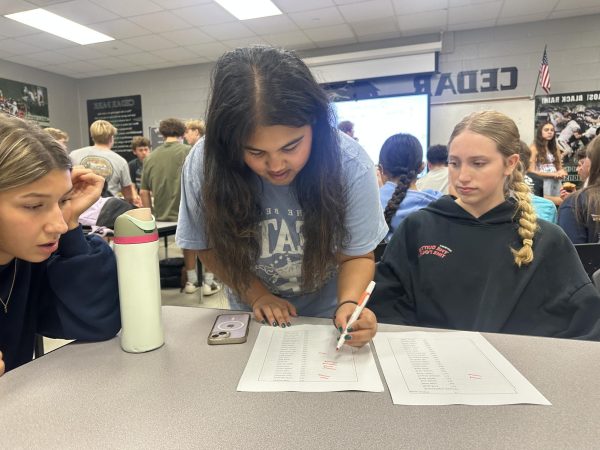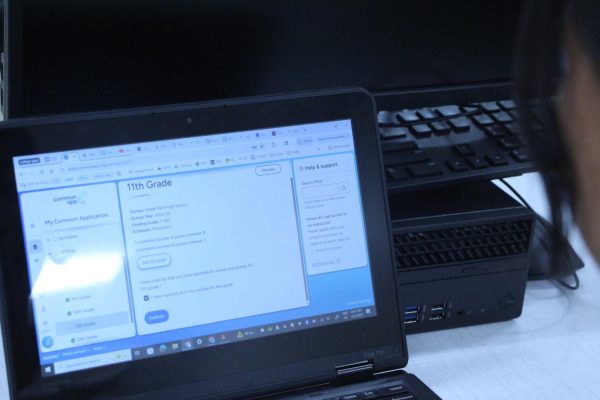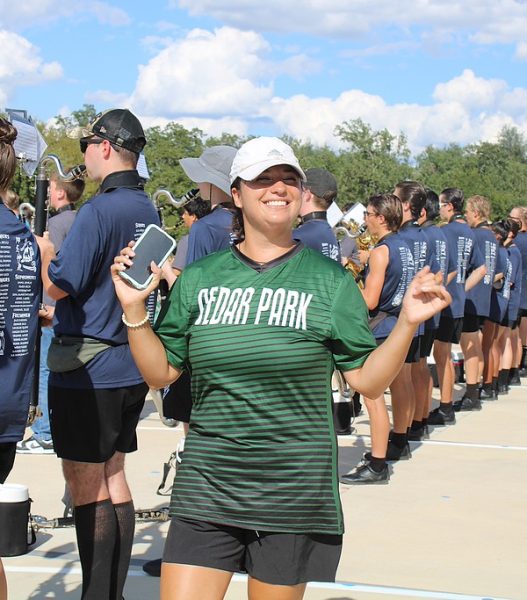Self Help for Students
Resources for Students Struggling With Anxiety
Photo courtesy of Creative Commons
Students struggling with anxiety aren’t alone. The school’s staff provides help for each student. There are multiple places to go to to find support.
November 19, 2018
More than one in 20 US children suffer from anxiety, according to Science Daily. At school, some students do not know where to go or how to handle their anxiety, but there are a few places available for students to go to receive help.
Tarajo Frost, School Nurse
Frost, who started at the high school four years ago, said that she has seen an increase in anxiety with students and has had many kids coming into the clinic for anxiety purposes. She attributes the rise in cases due to the increase in the use of media and also the “SAD” (Standard American Diet). This is a diet that is full of sugar and refined oils, which are inflammatory in nature and cause swelling where swelling should not be. She said it starts off in the stomach and moves to the brain.
“If you have ever heard of the gut instinct, that is right,” Frost said. “Our feelings start off in our gut and if our gut is not healthy, it causes cells to fail to communicate with our system, causing it to do things it normally doesn’t do, like being anxious or depressed.”
The clinic works to decrease all anxious responses like stomach aches and not being able to think.
“I give them a place to feel safe and calm down,” Frost said. “I coach them on techniques to calm and dissipate the stressor. We usually talk about the stressor and try to find solutions for the increased anxiety.”
In the clinic, there is a specific area for anxious students. Frost has fidget toys to help calm the mind, and books that help students learn how to work through and understand the anxiety in their lives. She said she can also coach students through deep breathing techniques.
“If you do ten slow breaths with the inhale count to three and blow out count to five, that activates the vagus nerve to calm and send our calm chemicals to the brain,” Frost said. “This allows us to think much clearer. It also helps right before tests, to access the learned material.”
The nurse has many tips for students having struggles with anxiety. Her tips range from sleeping 8-10 hours, exercising, eating healthy and finding “you time.”
“Take some you time,” Frost said. “Do a little something each day that gives you joy. That may be reading a pleasure book, listening to music, sitting outside in the sunshine and getting your vitamin D for 20 minutes, or maybe talking with friends face to face.”
Junior Helen Harris said that she visits the nurse for her anxiety and the clinic continues to help her a lot.
“I’ve struggled with anxiety my whole life, and after my brother passed freshman year, the anxiety got 10 times worse,” Harris said. “But the nurse has always been patient with me. Whenever I have anxiety attacks at school she lets me lay down and hang out until I feel like I can function at school. I know it’s not a lot but it really means a lot that I know I have a safe place to calm down at school.”
Vernon Rogers, Assistant Principal
Although the assistant principal’s office is not exactly the place to go to for anxiety purposes, Rogers still has some words of advice on the matter.
“A struggling student should never feel like he/she is alone,” Rogers said. “Sometimes it’s easier to start with talking to a friend, but we also want to teach our students that mental health struggles are not something to hide or be afraid to share with someone.”
Rogers focuses on making sure students feel that they know they are safe at school, and that they have somewhere to go at the school when having trouble with anxiety
“We want our students to feel comfortable reaching out for help,” Rogers said. “The counseling office is a great place for struggling students to visit. The sooner a person struggling with anxiety reaches out for help, the sooner they can start working toward figuring out what coping strategies work for them.”
Jacque Pittz, Counselor
The counselors office is the main place for students to go to with their anxiety. The counselors frequently work with quite a large variety of students. Their office is a space for students to decompress, talk and get themselves to a better place so they can get back to class.
“We start off with having the student talk about what’s setting them off, sometimes getting that out can be helpful,” Pittz said. “It’s contingent on what the student is going through. I help them figure out what’s going on so that they can get back to class and be as successful as they can that day.”
Some students struggle with things like bullying or having issues in a certain class, but Pittz said there is help for these students too.
“Get yourself to school, then start in the counseling office,” Pittz said. “[We will help] get you to a place where you are able to get yourself to class.”
Christina Hollander, Counselor
Hollander, the lead school counselor, said that coming to them when dealing with anxiety has proven to be beneficial to students.
“Everyone deals with stress and small amounts of anxiety,” Hollander said. “Those are what push us to accomplish goals and complete tasks. Students who deal with that stress or small level of anxiety are often times fine after a brief visiting with their counselor.”
Dealing with anxiety instead of going to class is something that Hollander said is important for students to understand.
“Mental health is a serious issue and students dealing with a true mental health disorder should not suffer silently,” Hollander said. “It’s important for students to know who they can go to for support and it’s important to have an open dialogue between the student, counselor and parents. School counselors are here to provide support to students on campus in whatever way we can.”



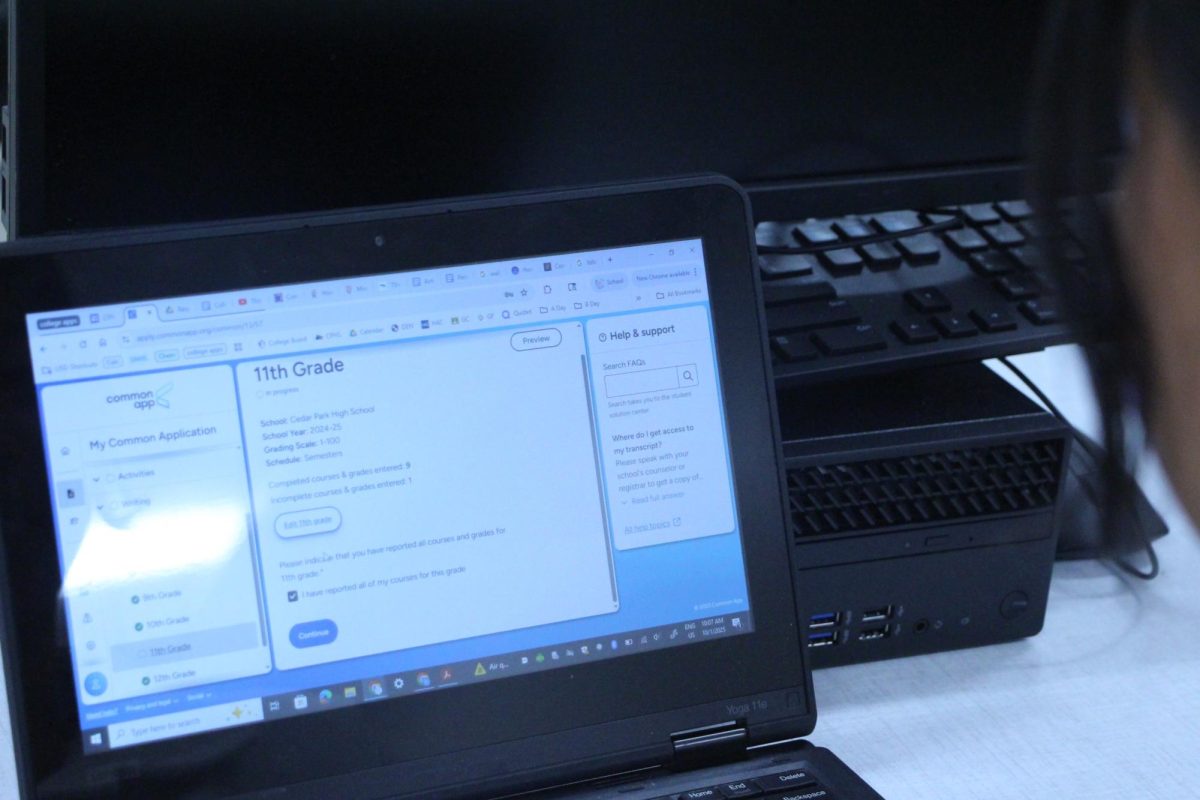






![Broadcast, yearbook and newspaper combined for 66 Interscholastic League Press Conference awards this year. Yearbook won 43, newspaper won 14 and broadcast took home nine. “I think [the ILPC awards] are a great way to give the kids some acknowledgement for all of their hard work,” newspaper and yearbook adviser Paige Hert said. “They typically spend the year covering everyone else’s big moments, so it’s really cool for them to be celebrated so many times and in so many different ways.”](https://cphswolfpack.com/wp-content/uploads/2025/05/edited-ILPC.jpg)



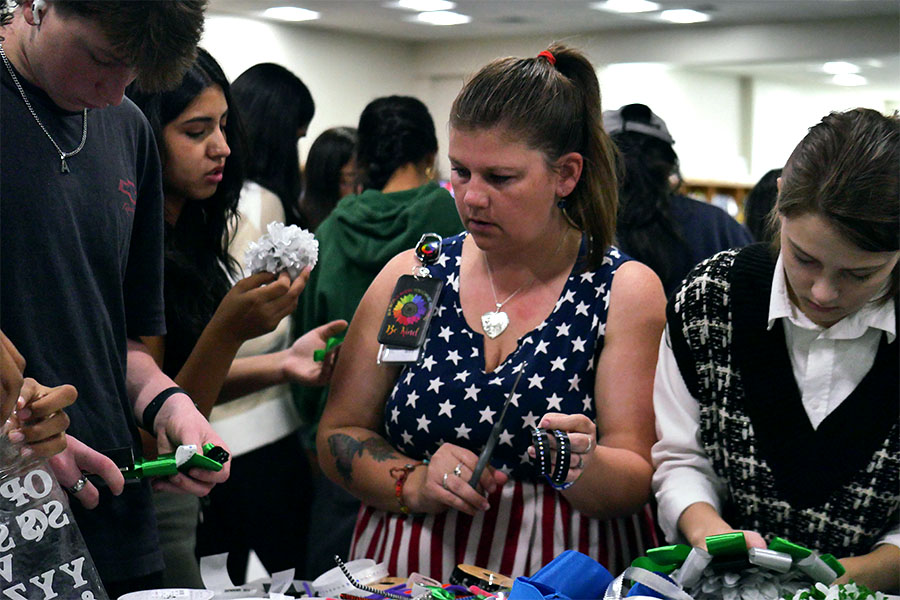

![Looking down at his racket, junior Hasun Nguyen hits the green tennis ball. Hasun has played tennis since he was 9 years old, and he is on the varsity team. "I feel like it’s not really appreciated in America as much, but [tennis] is a really competitive and mentally challenging sport,” Nguyen said. “I’m really level-headed and can keep my cool during a match, and that helps me play a bit better under pressure.” Photo by Kyra Cox](https://cphswolfpack.com/wp-content/uploads/2025/09/hasun.jpg)

![Bringing her arm over her head and taking a quick breath, junior Lauren Lucas swims the final laps of the 500 freestyle at the regionals swimming competition on date. Lucas broke the school’s 18-year-old record for the 500 freestyle at regionals and again at state with a time of 4:58.63. “I’d had my eye on that 500 record since my freshman year, so I was really excited to see if I could get it at regionals or districts,” Lucas said. “ State is always a really fun experience and medaling for the first time was really great. It was a very very tight race, [so] I was a bit surprised [that I medaled]. [There were] a lot of fast girls at the meet in general, [and] it was like a dogfight back and forth, back and forth.” Photo by Kaydence Wilkinson](https://cphswolfpack.com/wp-content/uploads/2025/03/Kaydence-2.7-23-edit-2.jpg)
![As her hair blows in the wind, senior Brianna Grandow runs the varsity girls 5K at the cross country district meet last Thursday. Grandow finished fourth in the event and led the varsity girls to regionals with a third place placement as a team. “I’m very excited [to go to regionals],” Grandow said. “I’m excited to race in Corpus Christi, and we get to go to the beach, so that’s really awesome.” Photo by Addison Bruce](https://cphswolfpack.com/wp-content/uploads/2025/10/brianna.jpg)













